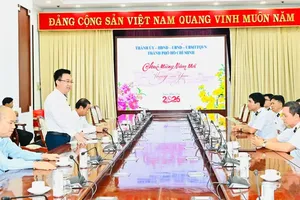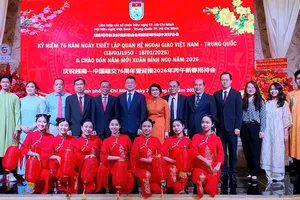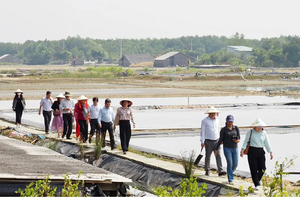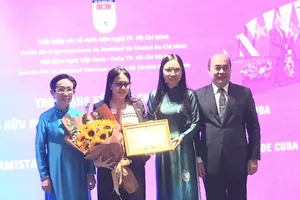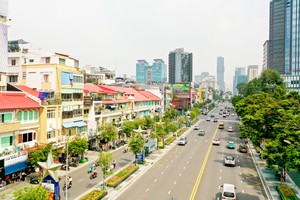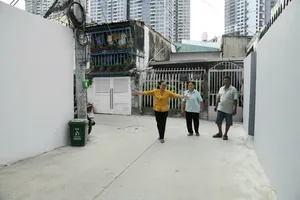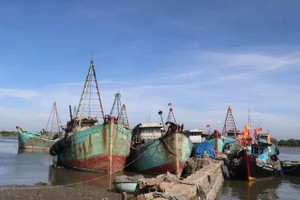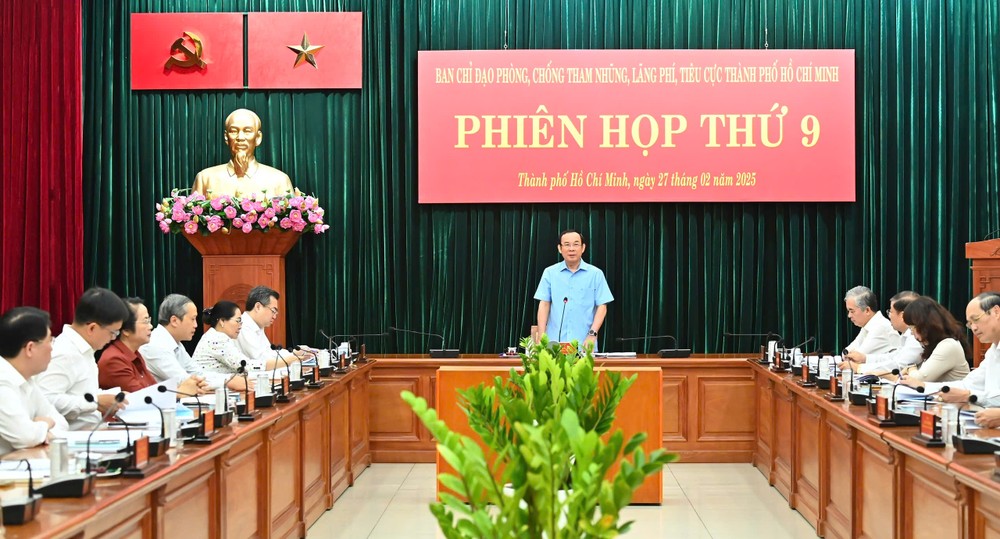
The Standing Committee of the Ho Chi Minh City Party Committee has issued Directive 46-CT/TU, intensifying efforts to combat corruption, waste, and misconduct. The directive calls on party organizations and agency heads to strengthen oversight and take decisive action, especially in personnel management and the operations of State-owned enterprises (SOEs).
Leaders are instructed to prevent influence peddling, vested interests, corruption or other negative phenomena in the processes of personnel appointments, assignments, and the administration of policies and entitlements for officials. Any delay or failure to detect corruption—especially if uncovered by external agencies—will result in strict accountability for those in charge.
One key priority is to address long-standing losses and inefficiencies in SOEs. Authorities are tasked with resolving persistent issues involving investments, projects, and financial management, ensuring public assets are handled with integrity.
The directive emphasizes placing anti-waste efforts on par with anti-corruption campaigns. It urges officials to identify and focus on high-risk sectors where violations are most likely to occur, deploying targeted solutions to prevent and deter misconduct.
Leaders at all levels are expected to lead by example, directly engaging in anti-corruption efforts, managing conflicts of interest, and enforcing discipline at points of public service. Public complaints and business grievances must be promptly addressed, and any signs of harassment or obstruction by officials must be dealt with swiftly and firmly.
The directive also reinforces the need to implement Regulation 1374-QD/TU, which outlines procedures for investigating complaints about ideological and ethical decline among officials. Transparency and proximity to citizens are highlighted, alongside efforts to combat bureaucratic attitudes and ensure responsiveness to public needs.
In terms of governance, the city is set to push forward administrative reforms and digital transformation. By applying new technology, using electronic signatures, and streamlining procedures, officials aim to reduce red tape and curb corruption at the root.
To bolster long-term prevention, the directive advocates combining strict enforcement with education and deterrence. Corruption cases must be prosecuted vigorously, with equal penalties for those who enable or shield wrongdoers. Asset recovery from corrupt activities is also to be pursued more effectively.
Special attention is being paid to personnel-related corruption. The directive warns against unethical practices in the appointment and promotion of cadres and calls for enhanced monitoring of how public power is exercised. It also encourages the selection of upright, competent individuals with a strong sense of duty to lead anti-corruption efforts. These individuals must not only be clean themselves, but courageous enough to confront wrongdoing—especially within anti-corruption agencies.
To foster a culture of integrity, the city plans to reward officials who show boldness and innovation for the public good, while phasing out those unwilling to act.
The directive also stresses the importance of civil society and the press. Lawmakers, media outlets, and the Vietnam Fatherland Front are urged to fulfill their roles in oversight and social criticism, helping to uncover misconduct and deter future violations. Whistleblowers and entities with effective anti-corruption practices will be praised and rewarded, while fabricators of false accusations will face serious consequences.
Ultimately, Directive 46 signals Ho Chi Minh City’s commitment to building a transparent, accountable administration. By rooting out group interests, waste, and abuse of power, the city hopes to restore public trust and ensure that governance serves the people effectively and ethically.

